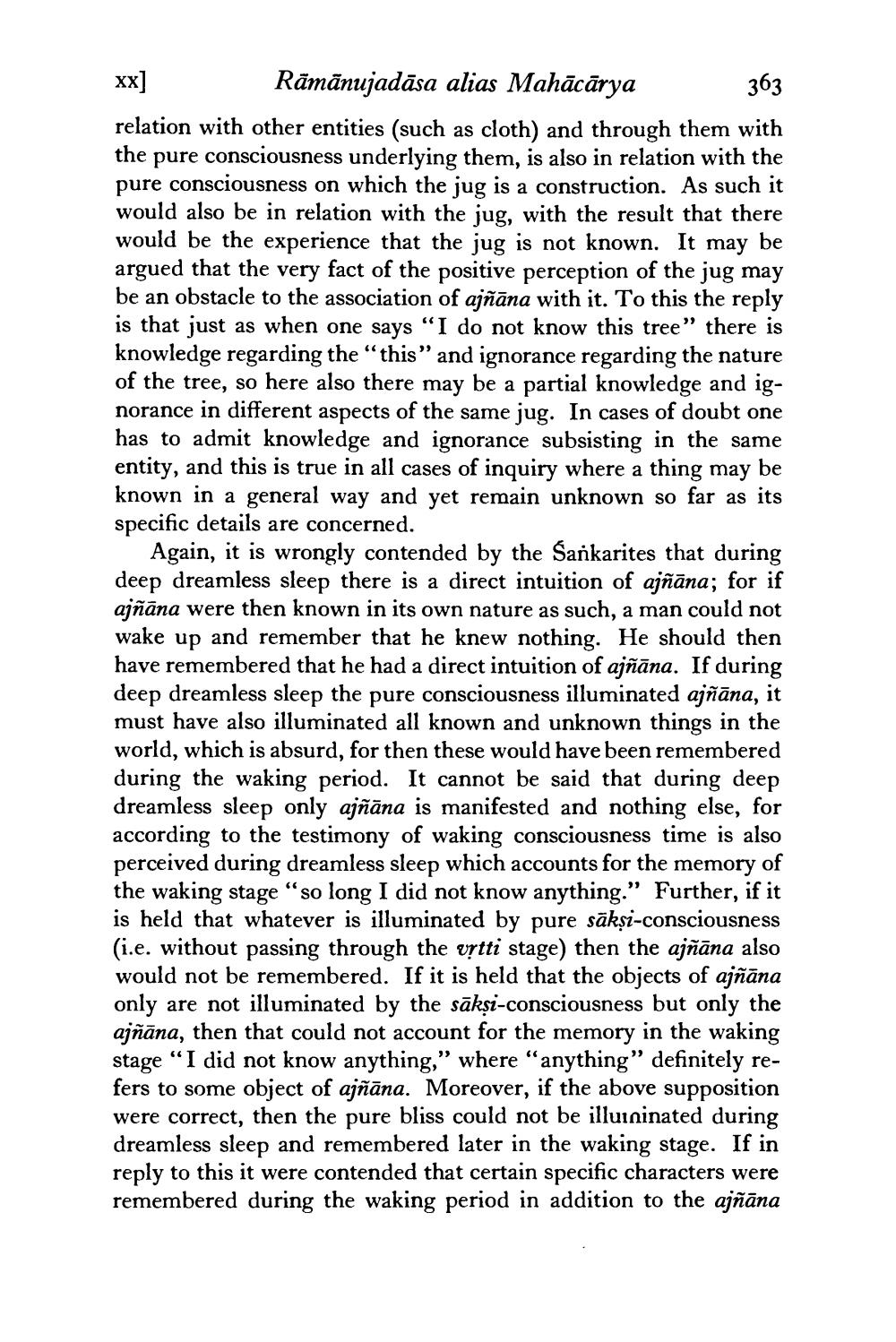________________
Rāmānujadāsa alias Mahācārya 363 relation with other entities (such as cloth) and through them with the pure consciousness underlying them, is also in relation with the pure consciousness on which the jug is a construction. As such it would also be in relation with the jug, with the result that there would be the experience that the jug is not known. It may be argued that the very fact of the positive perception of the jug may be an obstacle to the association of ajñāna with it. To this the reply is that just as when one says "I do not know this tree" there is knowledge regarding the “this" and ignorance regarding the nature of the tree, so here also there may be a partial knowledge and ignorance in different aspects of the same jug. In cases of doubt one has to admit knowledge and ignorance subsisting in the same entity, and this is true in all cases of inquiry where a thing may be known in a general way and yet remain unknown so far as its specific details are concerned.
Again, it is wrongly contended by the Sankarites that during deep dreamless sleep there is a direct intuition of ajñāna; for if ajñāna were then known in its own nature as such, a man could not wake up and remember that he knew nothing. He should then have remembered that he had a direct intuition of ajñāna. If during deep dreamless sleep the pure consciousness illuminated ajñāna, it must have also illuminated all known and unknown things in the world, which is absurd, for then these would have been remembered during the waking period. It cannot be said that during deep dreamless sleep only ajñāna is manifested and nothing else, for according to the testimony of waking consciousness time is also perceived during dreamless sleep which accounts for the memory of the waking stage "so long I did not know anything.” Further, if it is held that whatever is illuminated by pure sāksi-consciousness (i.e. without passing through the vrtti stage) then the ajñāna also would not be remembered. If it is held that the objects of ajñāna only are not illuminated by the sākṣi-consciousness but only the ajñāna, then that could not account for the memory in the waking stage "I did not know anything," where "anything" definitely refers to some object of ajñāna. Moreover, if the above supposition were correct, then the pure bliss could not be illuininated during dreamless sleep and remembered later in the waking stage. If in reply to this it were contended that certain specific characters were remembered during the waking period in addition to the ajñāna




